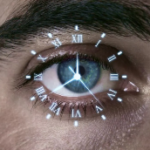Eye Exam FAQS
HOW LONG DOES AN EYE EXAM APPOINTMENT TAKE?
For first visits and annual eye examinations, plan to set aside 1.5 to 2 hours for your appointment, as dilating your pupils alone can take up to 30 minutes.
ARE EYE EXAMINATIONS PAINFUL?
No. Many patients are concerned about having eye drops administered and having their pupils dilated. However, this is completely painless, and no other part of the examination will be painful.
WHAT IS A REFRACTION TEST?
Refraction is when your doctor tests for distance, intermediate, and reading vision. This test is where we ask you, “Which is better, 1 or 2?” Please note that most insurance companies do not cover a refraction performed for prescription eyeglasses, and there is a charge of $40.
Who should get their eyes examined?
Eye examinations are an important part of health maintenance for everyone and should be done annually. Adults should have their eyes tested to keep their prescriptions current and to check for early signs of eye disease.
Children’s eye exams are important to ensure normal vision development. Additionally, vision is closely linked to the learning process. Children with undetected vision problems often will have trouble with their schoolwork. Many times, children will not complain of vision problems simply because they don’t know what “normal” vision looks like.
Can I just get a vision screening instead of a comprehensive eye exam?
Vision screenings are limited eye tests that help identify people who are at risk for vision problems. These are the brief vision tests performed by the school nurse, a pediatrician, other health care providers, or volunteers.
The eye test that you take when you get your driver’s license renewed is an example of a vision screening.
Keep in mind that a vision screening can indicate that you need to get your eyes checked, but it does not serve as a substitute for a comprehensive eye exam.
A comprehensive eye examination is performed by an eye doctor and includes careful testing of all aspects of your vision. Based on the results of your exam, your eye doctor will then recommend a treatment plan for your individual needs.
What should I bring with me to my eye exam?
Bring a list of any prescription and non-prescription medications you are currently taking. Include vitamins, herbs, and other remedies you may use. Include the dosages you take for each medicine or other substance and how long you have been taking them.
If you currently wear corrective lenses, bring all pairs of eyeglasses you wear routinely. If you wear contacts that were prescribed elsewhere, bring a copy of your most recent contact lens prescription.
Finally, prepare and bring a list of questions or concerns that you would like to discuss with the doctor. And if you are interested in specialty services, such as LASIK or Botox®, be sure to mention this—both when you schedule your exam and when you check in on exam day.
Also, be sure to bring your driver’s license and a copy of your vision insurance card and/or any other medical insurance cards you have if you are seeking insurance coverage for a portion of your fees.

